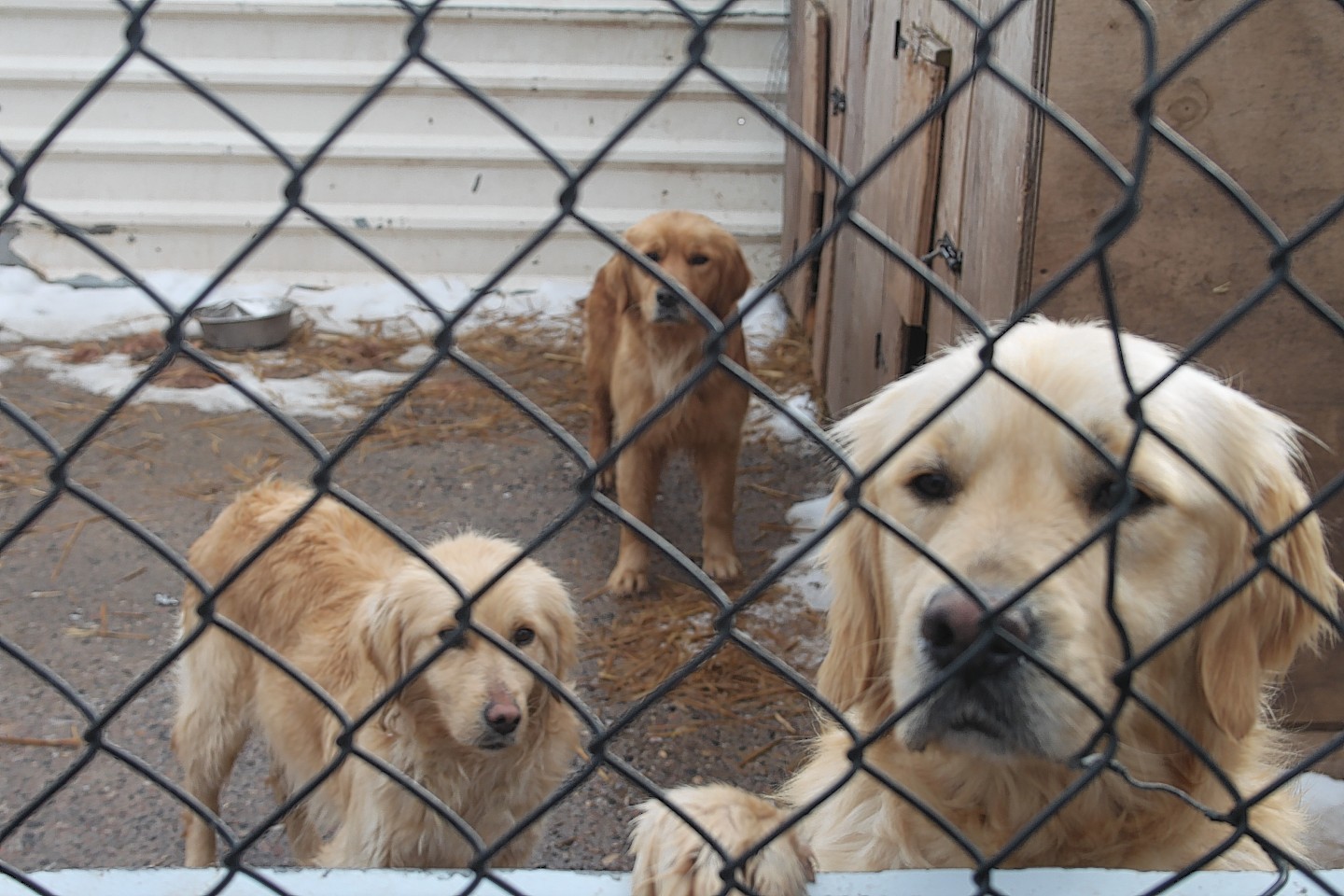Animal welfare campaigners have called on Aberdeenshire Council to stop a company from being allowed to breed dogs at the site of a former illegal puppy farm.
Aberdeen-based Dog Action Working Group Scotland (Dawgs) said it would “strongly urge Aberdeenshire Council to refuse” a licence application for East Mains of Ardlogie, Fyvie “given their past history”.
The Scottish SPCA, whose inspectors found animals in an appalling state at the remote farm in 2013 after the underground business was exposed, has also intervened in the matter.
Puppies were suffering from lice, skin sores and matted hair and the floor was so filthy with animal waste that some of the animals had developed cysts on their paws.
Three men from the same family – Frank and Sean James of Montrose and Edward James of Aberdeen – admitted keeping 72 dogs in horrific conditions at Aberdeen Sheriff Court in October 2014.
Sean James, who was 18 at the time and was ordered to carry out 50 hours of community service and banned from keeping more than two dogs for three years, declined to comment on the new plans.
His name appeared as the agent on a planning application, which was approved by the council in October despite local objections about noise and the suitability of modular buildings being used as kennels.
Temporary consent was given for a year and there has so far been no application to extend that initial period.
But council officers are now considering whether to allow a bid – submitted in the name of Elizabeth James – for a breeding licence.
Asked about future plans and about who would be running the business, Sean James said: “We would rather not say anything on that side right now.”
A Scottish SPCA spokeswoman responded: “We have had previous dealings at this location and are currently in contact with the council.”
Kennel Club secretary Caroline Kisko said she hoped councils would be “extra vigilant when granting licences and always have the health and welfare of dogs as a priority”.
An Aberdeenshire Council spokeswoman said the site had been inspected by a vet as part of the process – which includes checks for suitable accommodation, food, water, exercise and disease protection.
She said regular inspections would follow if the licence was granted.
